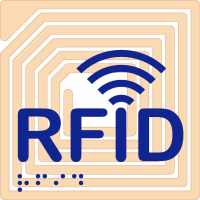California Derails Plan to Imbed Radio Chips into Drivers Licenses…for Now

California drivers will not have the option of carrying around radio-frequency identification (RFID) chips embossed on their licenses—at least, for now—after Senate Bill 397 became bogged down in the State Assembly.
The legislation, unanimously approved by the State Senate in May, would redesign a version of state driver’s licenses with an RFID chip that has garnered criticism from privacy advocates. Four other states, New York, Washington, Michigan and Vermont, already have them and the technology is being implemented in other products. More than 100,000 people in New York have them.
Although the bill is apparently dead for this session, it’s possible the legislation will be revived before the end of the year or shortly thereafter. It would give drivers the option of having the card, which could be used to speed up border crossings by broadcasting a unique number that is read by a scanner and then checked with a Homeland Security database.
Enthusiasts envision its future use in grocery stores, banks, hospitals and just about anywhere that an enhanced ID with the capability to access stored information on an individual might come in handy. RFIDs are already used in manufacturing production, livestock tracking, libraries (as replacements for barcodes), museums (like San Francisco Exploratorium) and pigeon racing. Walmart and the U.S. Department of Defense use them to track materials through their supply chains. The U.S. Department of State issues passport cards with a version of the chip.
Civil libertarians envision RFIDs as tracking devices by the authorities to monitor the movements of law-abiding citizens. Privacy advocates worry about it contributing to a future where myriad data sources, public and surreptitious, feed into a central database that can be accessed by unknown parties, marketed everywhere and hacked at will.
RFID proponents say the technology can be made safe and secure by using encryption and random number generators while limiting their broadcast capability to a few feet. American Civil Liberties Union (ACLU) lawyer Nicole Ozer told Wired magazine that wasn’t going to get the job done. “The cost to privacy and security far outweighs any benefits,” she said. “If you carry one of these licenses in your wallet or purse, you can be tracked and stalked without your knowledge or consent.”
If people had trouble in the past envisioning their government or law enforcement hoovering up their personal information, including their whereabouts, and storing it in a database, ongoing revelations about the National Security Agency (NSA) ongoing activities with phone records and Internet websites have made that easier.
-Ken Broder
To Learn More:
California Abruptly Drops Plan to Implant RFID Chips in Driver’s Licenses (by David Kravets, Wired)
California New Driver’s License RFID Chips Suspended, Still on the Way (by David Cornell, The Inquisitor)
California Votes on Driver's Licenses That Allow the Government (and Anyone With $40) to Stalk You (by Dana Liebelson, Mother Jones)
- Top Stories
- Unusual News
- Where is the Money Going?
- Controversies
- U.S. and the World
- Appointments and Resignations
- Latest News
- Trump to Stop Deportations If…
- Trump Denounces World Series
- What If China Invaded the United States?
- Donald Trump Has a Mental Health Problem and It Has a Name
- Trump Goes on Renaming Frenzy






Comments